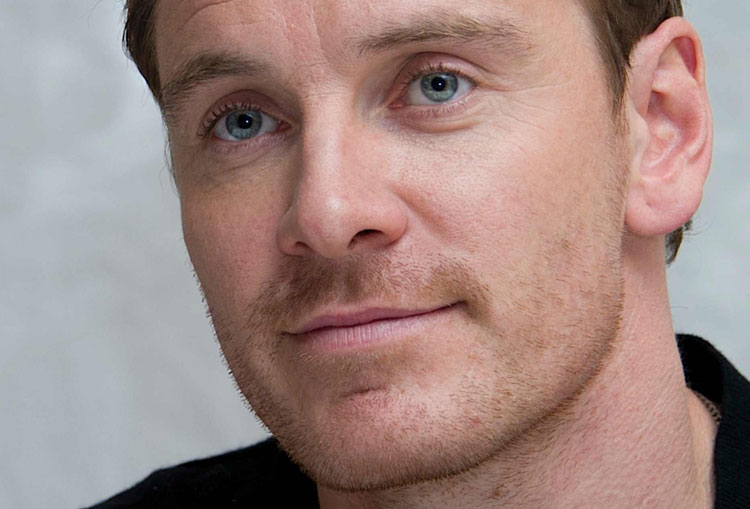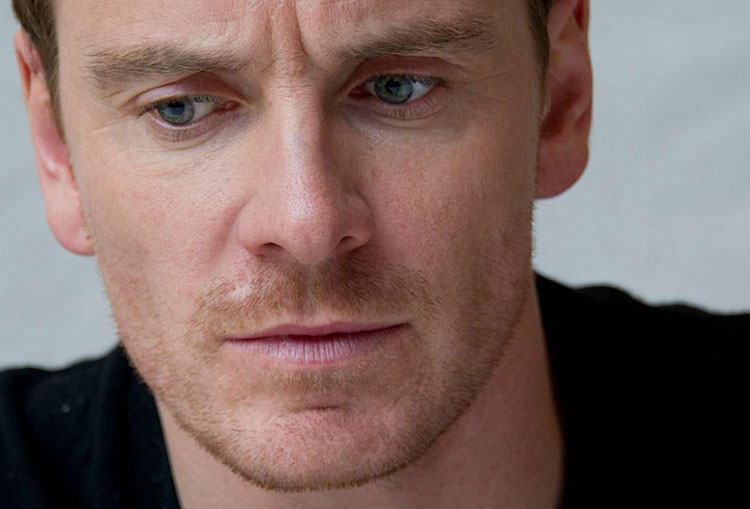
|

|

|

|

|

|

|

|

|

|

|


Steve McQueen follows the acclaimed 'Hunger' and 'Shame' with this incredibly powerful, based-on-fact story of one man's fight for survival and freedom. In the pre-Civil War United States, Solomon Northup (Chiwetel Ejiofor), a free black man from upstate New York, is abducted and sold into slavery. Facing cruelty (personified by a malevolent slave owner, portrayed by Michael Fassbender), as well as unexpected kindnesses, Solomon struggles not only to stay alive, but to retain his dignity. In the twelfth year of his unforgettable odyssey, Solomon's chance meeting with a Canadian abolitionist will forever alter his life. Opening on October 18th in the US and January 24th in the UK, '12 Years a Slave' also stars Brad Pitt, Lupita Nyong'o, Alfre Woodard, Paul Dano, Benedict Cumberbatch, Ruth Negga, Adepero Oduye, Paul Giamatti, Garret Dillahunt, Sarah Paulson, Scoot McNairy, Dwight Henry, Quvenzhane Wallis, and Michael Kenneth Williams.
In '12 Years a Slave' you play a slave owner named Edwin Epps, a man for whom the words "brutal" and "despicable" barely suffice. When you play a character like that, can you tell us about your approach to this man? I know you always go with the human aspect of the character, finding something relatable…?
Michael: Yeah. He's a human being, so I approached him with a very human touch. I tried to find his voice first. I worked with a lot of different tapes and our dialect coach helped me out a lot. And then I just spent a lot of time with the script. It was about finding the human being in Epps, because obviously what he does is pretty terrible, but… I don't know, there's something in there where I feel a little sorry for him. He's a victim of the time as well, in a way. He's in love with Patsy and he can't deal with it, he thinks, "How can I be in love with a slave?" So he sets about suppressing her and beating her to try to beat it out of himself. So I thought that there was a really amazing humanity in that alone. So that was my in: the love for Patsey and how he was processing that. I think I see Epps as a representative of the time, all the ugliness and despicable is culminated into this character.
Q: You have a sort of responsibility to the piece to get under his skin…?
Michael: Yeah, there's a responsibility to play the character as a human being as opposed to me standing outside of him going, "God, Epps is a terrible person, I'm going to portray a terrible person." I've got to try to understand him and try to get under his skin and do it to the best of my ability. His love of Patsey was something that Steve and I had talked about right at the beginning. Steve would always quiz me, "So, what do you think about Epps?" For me he was a tragic character because he's in love with Patsy and he couldn't process that love and he didn't know what to do with it.
I thought he was a real combination of all the ugliness of that time and the slave trade... all in this human being that I could represent. He's like a boil on the skin of the society at the time. I see him as a victim as well, you know? And I guess looking at him like that and trying to find a human being it helps you avoid becoming a cliched evil slave owner or landowner. It was important to find a human being so that audience members – even as horrendous as he is at times – they recognize something in him. They can see something in him that they recognize, and I think that's more effective.
Q: What was the experience like acting opposite the likes of Chiwetel and Lupita, especially in the more challenging scenes and considering the way Steve shoots with complete takes?
Michael: You're only as good as the person standing opposite you, especially when you're doing a film like this. There was a lot of love on set and a lot of support and provoking each other and challenging each other, but at the end of the day supporting one another and looking after one another – and that's down to Steve, he creates that environment. It's a very trusting environment and safe environment to create. It's important to fall on your face a few times. When you don't have the support railings that you do on a lot of films, with coverage shots and short takes, which makes it literally acting by numbers – this is the real deal.
With Steve you have complete takes, and when that's happening, it's like music. There's rhythms there, you have to dance with the cameraman, Sean Bobbitt, and with the fellow players. If the rhythm's out, you feel it, you see it. But if it's in sync, then something special happens. You surprise yourself. You go to places that you didn't imagine you would. It requires a lot of commitment and focus, and if one of us wasn't committing to the other something drops, something falls apart. It was amazing working with the cast on '12 Years a Slave,' such an amazing cast.
Q: You've starred in all of Steve McQueen's three feature films. How is it working with him on set? Just being around you two you can see there's a bond there….
Michael: It's painful (laughs). But really, it's just an incredibly special experience working with Steve. From the beginning of my career I've been seeking, looking for somebody like Steve – somebody who will bring the best out of you and take you to the limit of yourself and then beyond it, and then maintain that level of beyond the limit... if that makes sense (laughs). The focus on set is incredible, and not just with the cast but with the entire crew. There's just this sort of absolute do or die philosophy on set. It's just amazing, One of the many great things about Steve is that he allows you to believe in your instincts, and so whatever choice you make is the right choice, because you're in the right moment.

With the prep there's so much attention and care and love, which is important with these difficult stories he tells. It wouldn't have been possible without the real sense of love and connection on set. Everyone involved on the set was linked to one another, and without one another we wouldn't have gone to the heights that we got to. I think it was total dependence on one another, and Steve's the head of that.
Q: With 'Hunger,' 'Shame' and now '12 Years a Slave,' you play three very different characters. I can imagine that they were all challenging in there own rights for a variety of reasons, but was there one in particular that you found the most difficult?
Michael: For me it's apples and oranges, they were all challenging pieces for different reasons. I think they're challenging for the audience as well, which is a great thing. With Steve's films, as an audience member you have to contribute, it's not a passive experience in any respect. They all had their levels of challenge to them, but I have to say that with this one here the support of this large cast made it a lot easier. Together we looked after each other and supported each other. And Steve's very demanding, that's for sure. He expects everything of everyone, not just the actors, but the crew as well and also himself. But I love working with him it because I just know that working with him is always a very special experience and a very great learning experience. I learn so much working with him.
